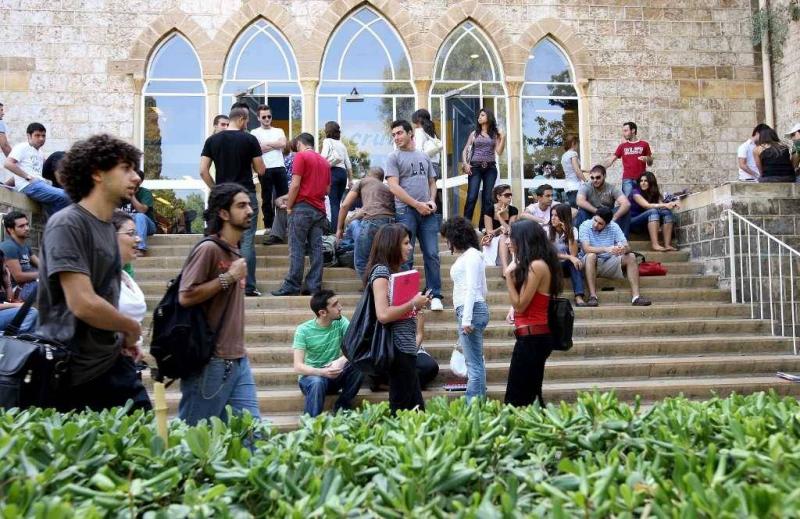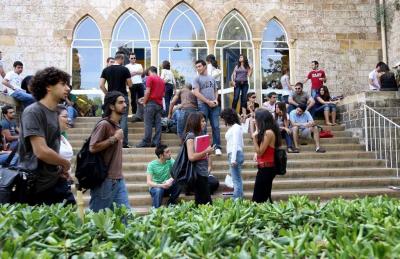So far, universities have not changed the previously set dates for the start of the new academic year 2024-2025, which is scheduled between late August and early September. To date, most of them do not plan to switch to unregulated remote learning. The legislation implemented during the COVID-19 pandemic is no longer in effect and proved ineffective given the dilapidated infrastructure. However, administrations have expressed their readiness for any emergencies, and they are transitioning to what they call Plan B in anticipation of any developments, according to the Dean of Student Affairs at the Arab University of Beirut, Sobhi Abu Shahin. The university is preparing to open its doors to students on September 2, with exceptional measures dependent on the severity of the security situation.
What might Plan B entail? He responds that the last resort could be online learning on the basis of necessity overriding prohibitions. Abu Shahin points out that there are not many Arab students at the university, most of whom are Syrian and Palestinian students residing in Lebanon, while the percentage of foreign students is very low, as reported by "Al-Akhbar."
The Lebanese American University has established an emergency committee, according to the Director of Public Relations and Media, Nada Tabbieh, to keep up with the latest developments in order to ensure the safety and security of employees working during the summer. The university is scheduled to welcome students for the new academic year on August 31, with no changes to this date so far. Tabbieh notes that the university is fully prepared to transition to online learning at any moment, and has the necessary resources for this.
Meanwhile, communication with the administration of the American University of Beirut could not be established for statistical information about the number of students currently outside Lebanon. However, student sources indicate that the university adopted, in the middle of the last academic year, a format that allows students to follow their classes remotely and take their exams at centers near their residences abroad. This format might also be applied this year, although no emails informing students of any change in the start date, set for August 26, have been received. Student sources mention that a large number of foreign students did not leave for their home countries this summer.
Some universities, such as the University of the Holy Spirit - Kaslik, are closed throughout August, with no students or staff present, and options available cannot be determined until September 1. According to the president of the Association of Lebanese Universities and the president of the Jesuit University, Selim Dakhash, most universities within the association will not resort to remote learning except in extreme exceptional cases, and only for certain master's and diploma programs. On September 1, the Jesuit University hopes to welcome its students in person, and they wish for student attendance.
As for the Lebanese University, it has issued this year, unlike the years following the crisis, the results of most entrance exams for faculties and the second round exams for some before the August break. The president of the university, Bassam Badran, speaks about a successfully normal academic year and a high turnout witnessed in the entrance exams last July, with an increase of 28% in law and an additional 1,500 students applying for the business school exam, with a 95% attendance rate. While Badran clarifies that he coordinated with deans and directors to establish new mechanisms to monitor course attendance, he states that the university is preliminarily preparing to start its academic year early, on September 16, rather than in October as was the case previously, according to "Al-Akhbar."




